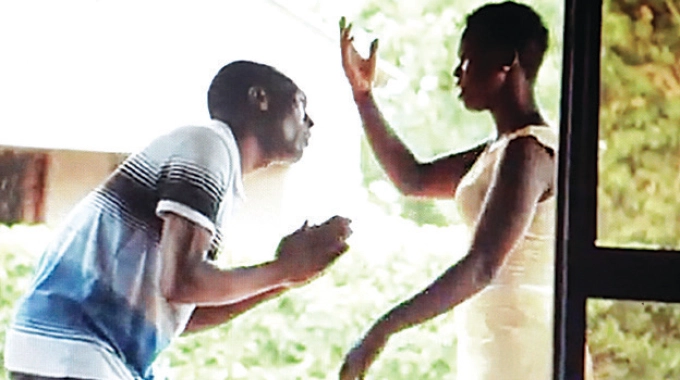Betrayal turns the tables in Mebo’s love story
By Lovemore Chikova
It was just three years ago when we all welcomed Mebo in our homes, bars, cars and public spaces yelling that popular line “ndongokuda wakadaro” (I love you no matter what), that left all of us spellbound.

Not surprisingly, Obert Chari and Harikeni Stars’ song “Mebo” topped the charts mainly because of that infectious line.
Well, the commitment from the young lady to her would-be husband was unparalleled, taking us back to the olden days when love was truly blind, and unconditional.
Just imagine — the young man tried all means to show Mebo that he was unfit to have her as a wife, for he was going to lower her standards.
He laid bare his poor soul — he was just a herd boy, wore second hand clothes, knew nothing about gigs, an expert in playing the traditional drum using a stick, his cellphone was the oldest version and he was not employed.
In short, the young man did not have money.
Yet, in the face of all these adversaries, which can easily turn off any average girl, the youthful Mebo remained adamant – “ndongokuda wakadaro”.
Fast forward to the present, the major question facing those who follow Chari’s music is: What has really gone wrong in this seemingly unshakable love affair?
After all, three years is just a short time, isn’t it?
Chari has followed up “Mebo” with another hit in the making simply titled “Sorry Mebo”, where the tables have suddenly turned.
Mebo now wants to leave the matrimonial home after she discovers that what she thought was true love is actually just a fallacy.
But this time around, she is quiet, the covenant making “ndongokuda wakadaro” is gone.
Instead, it is the young man who goes down on his knees apologising for his shenanigans and begging Mebo to reconsider her decision to leave the matrimonial home.
Even on the video accompanying the song, Chari chooses a different woman to act the part of Mebo, a far cry from the youthful and gorgeous Mebo who hit our screens with virtuoso in the original video.
“Sorry Mebo” is one of the songs on Chari’s new eight track album titled “Ubuntu” that was released this year.
The other songs are “Baba Namai”, “Jambwa”, “Svikiro Remweya”, “Dherira”, Takatadzeiko”, “Nhava Isingabvinze” and the title track “Ubuntu”
Chari said he came up with “Sorry Mebo” to illustrate what many young couples go through in their early years of settling down in marriage.
A scene from the ‘Sorry Mebo’ video where Mebo threatens to leave her matrimonial home.
“We are saying when people get married they should learn to forgive each other,” he said in an interview. “If there are problems we should not go to the extremes, but should come to an understanding and apologise for our mistakes.
“It is a response to our audiences who were asking that we give them a follow-up to Mebo. We listen to our fans and give them exactly what they want.”
In “Sorry Mebo”, the young man exhibits a character far removed from the commitment he had in the first outing.
The young man confesses he has been deliberately unfaithful, he denies Mebo access to his phone because it contains messages from his girlfriends and he spends time with his “small house”.
He also tells Mebo that he gets unnecessarily angry each time she tries to inquire about his behaviour as a way of concealing his mischief.
At the end, the young man asks God to make him focus on Mebo alone, without comparing her with other women.
The song “Svikiro Remweya” on the album reminds us of Chari’s affiliation to the Zion Christian Church, for it is done in the mould of the church’s popular “Ndire Ndire”.
The song is presented through a traditional shona culture beat.
“We wanted to demonstrate that there is a thin line between our Shona culture and Christianity,” said Chari.
“In fact, many of the practices we follow have a reference in the Bible.”
The album has been uploaded on Youtube, Streams, Spotify, Songtradr and is also available on Obert Chari and Harikeni Stars Facebook page.
Chari encouraged fellow musicians to persevere in the face of Covid-19, for the disease will be defeated soon.
He said he is taking advantage of a lull in live performances due to Covid-19 to produce more music and have collaborations with fellow musicians.
“We have done collaborations with Chief Hwenje, Tatenda Pinjisi and Kapfupi,” said Chari. “We are also in line to do more collaborations with Lucky Chikuwa and Comic Pastor.”
Chari recorded seven of the songs on his new album at Mambo Studio in Chegutu where they were produced by Hermas Masanje, while “Jambwa” was produced by DJ Tamuka at Mushroom Studios. The Herald






